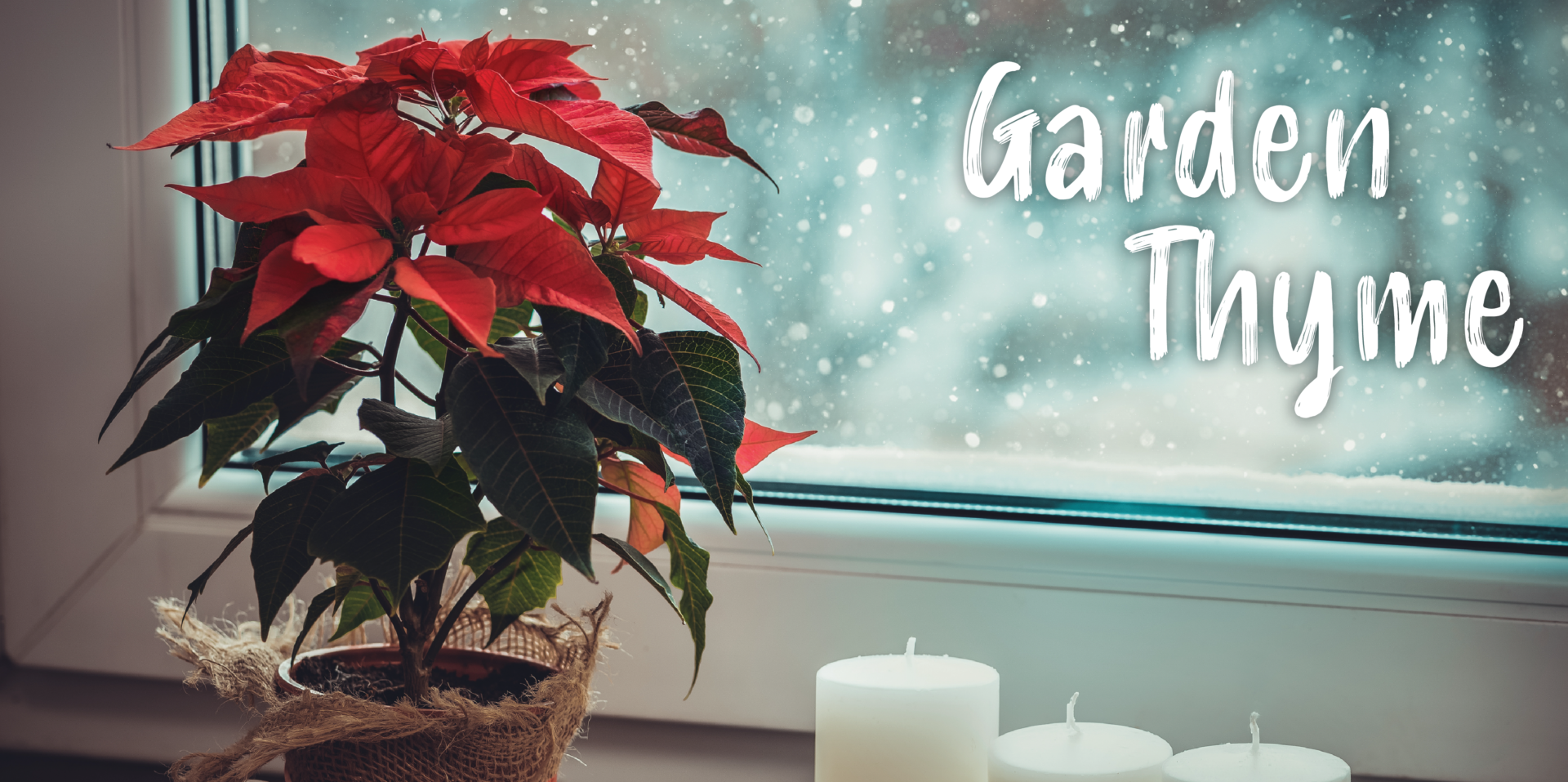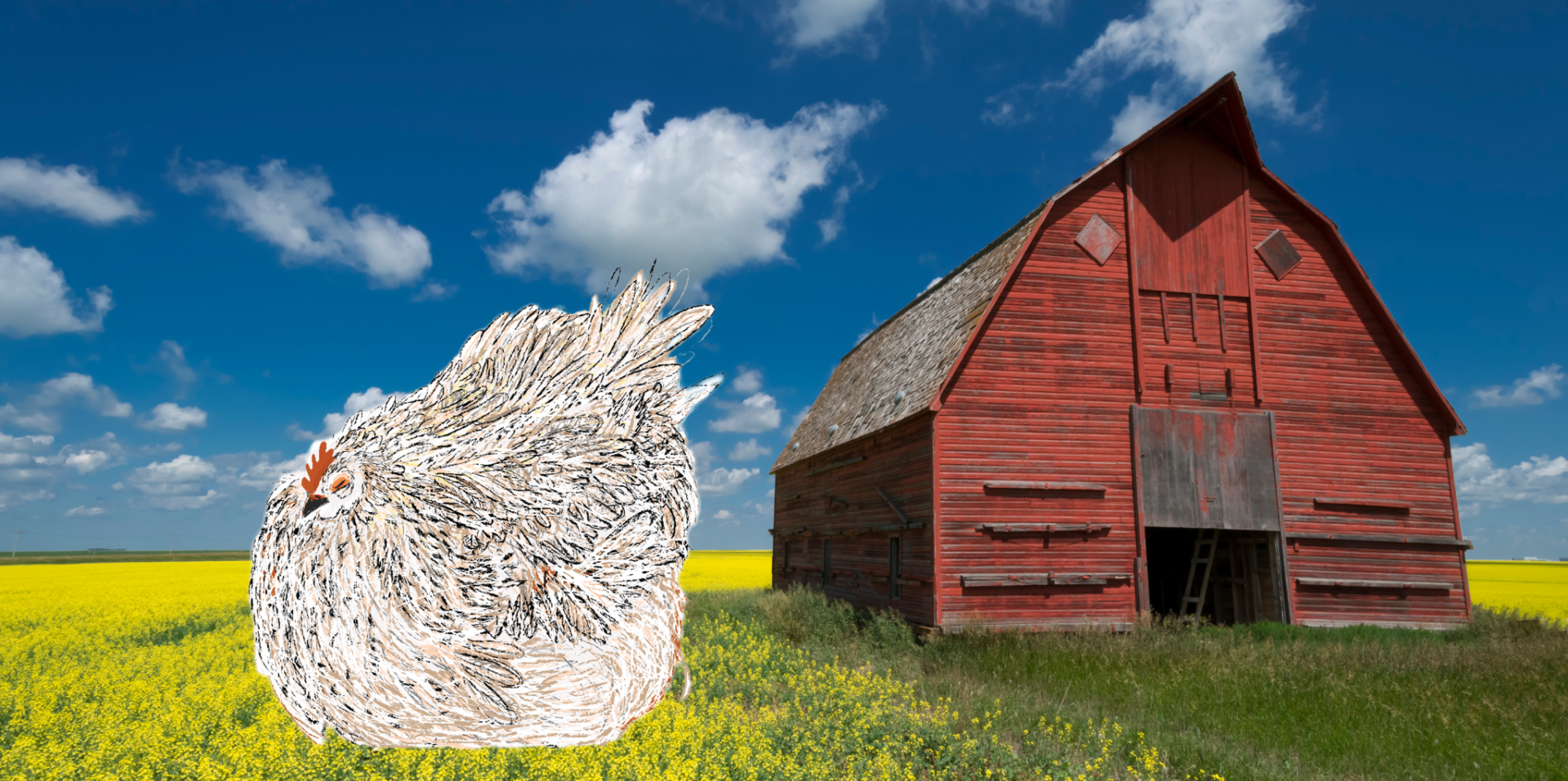Deck Your Halls with These Festive Holiday Plants!
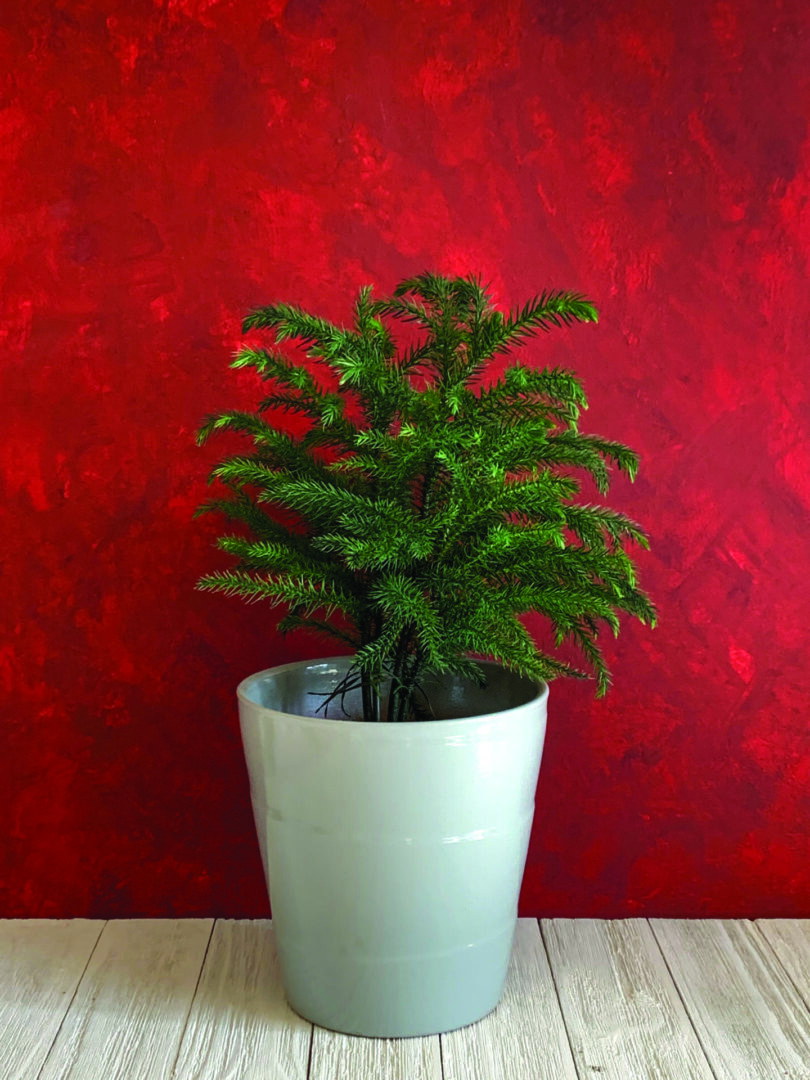
Norfolk Island Pine
Charlie Brown was onto something when he chose his lowly Christmas tree. If you don’t have the room for a large tree, try a Norfolk Island Pine. These evergreen trees grow slowly inside, and you won’t have to worry about it busting through the ceiling.
Compared to the stiff and straight limbs of fir, spruce and pine trees—the branches of a Norfolk Pine are droopy in an elegant way. However, this means that its branches cannot hold many ornaments, but only lightweight decor. Give your Norfolk Pine a Christmas makeover with things like red ribbon, a lightweight garland, a few light and dainty ornaments, or small string lights.
To care for this plant, keep it in an east or west facing window with medium-bright light—giving it 6 to 8 hours of light per day. If the tree isn’t getting enough light, you’ll see its branches start to drop. Water this plant when dry to the touch, but don’t let the plant dry out. This is an evergreen plant you can keep for a long time by refreshing its soil every two years.
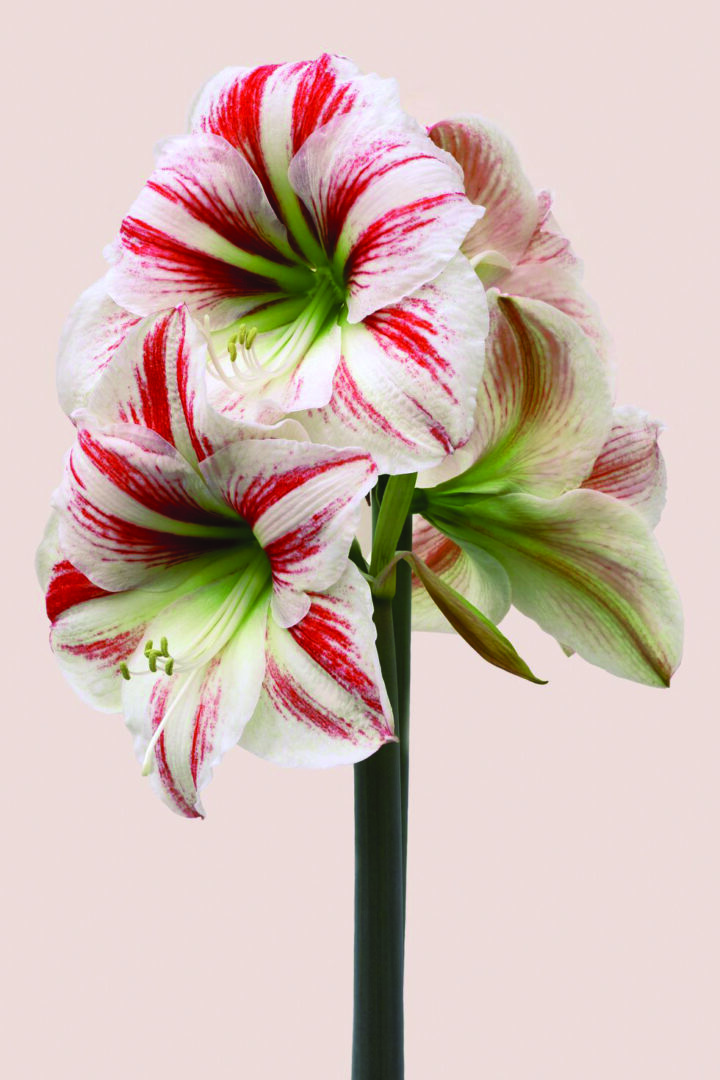
Amaryllis
She’s big, beautiful, exotic, and she’ll add the right pop of Christmas color to your home this year! The Amaryllis blooms wonderfully indoors 4 to 6 weeks after being planted, and it will bloom again next year if cared for correctly.
The key to having a beautiful Amaryllis is putting the plant in bright light, and turning the pot every few days so the flower grows upright. After the flowers fade—cut the stalk, keep the leaves and allow them to replenish the nutrients in the bulb. Move the plant outside until summer, let the plant go dormant in a garage or basement while removing yellowed leaves and do not water it. Bring it back out in November and begin watering again to have a fresh bloom by December!
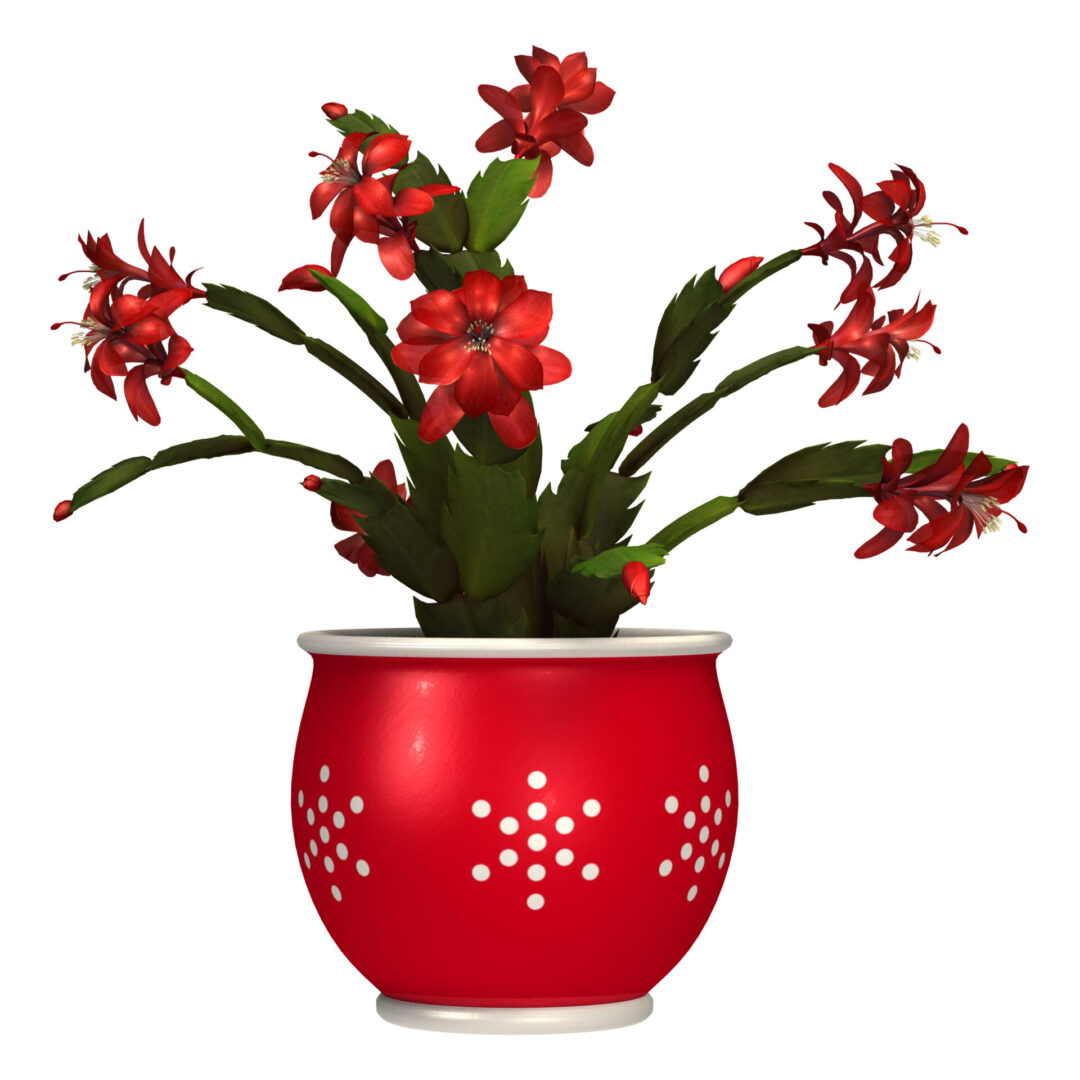
Christmas Cactus
This is a great no-hassle plant that will spice up your Christmas decor with beautiful blooms! The hardy plant will live on in your home for decades. There are even different species of the cactus that will bloom at different times of the year including November and Easter!
The Christmas Cactus is a succulent plant, and should only be watered when dry. Don’t let the plant sit in water or it will become mushy. You can place the plant in either low or bright lighting, however, the blooms can burn if in bright sunlight for too long.
To keep this plant year-round, fertilize it monthly from April to October and take it outdoors for about 3 weeks in early fall. Bring the plant back in once the temperatures drop and you’ll have new blooms!
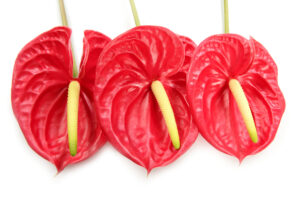
Anthurium
Next on the hassle-free plant list is the Anthurium, a bright red heart-shaped plant that enjoys humidity and sunlight. Water this plant when 50%-75% of the soil is dry, and feel free to mist the plant daily. During spring and summer you can feed this plant with liquid fertilizer for indoor plants and it will continue blooming for months!
Warning: This plant is toxic to animals and humans, so keep it out of reach of pets or young children.
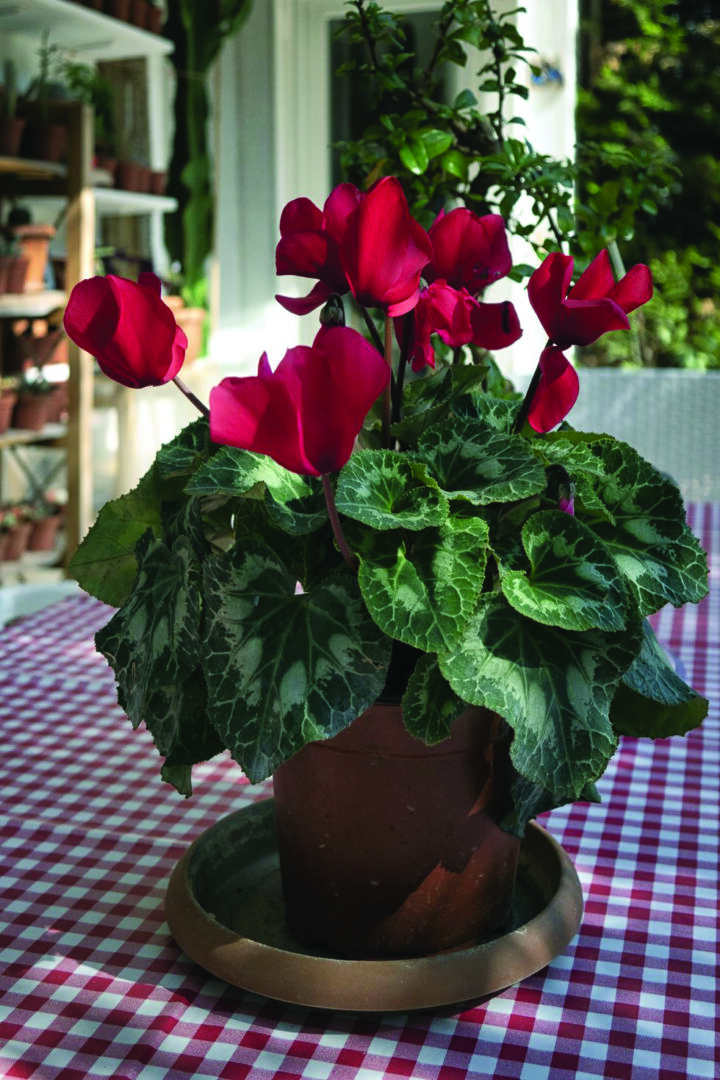
Cyclamen
This cool weather plant comes in eye-catching pinks, reds, purples and whites with interestingly patterned leaves. It can bloom for more than 8 weeks in the right conditions, like medium light. This elegant flowering plant will go dormant after the weather warms up but will bloom again when the season comes back if cared for properly.
Water the plant from the bottom by filling a tray with water and putting the pot in the tray to soak. This allows the root ball to get plenty of water and the soil to moisturize. After 15 to 20 minutes of soaking, remove the plant. During dormancy, (April-September) store this plant in a cool, dry place. Bring it back out as the weather starts to cool and water sparingly until it begins to bloom bigger and better than before.
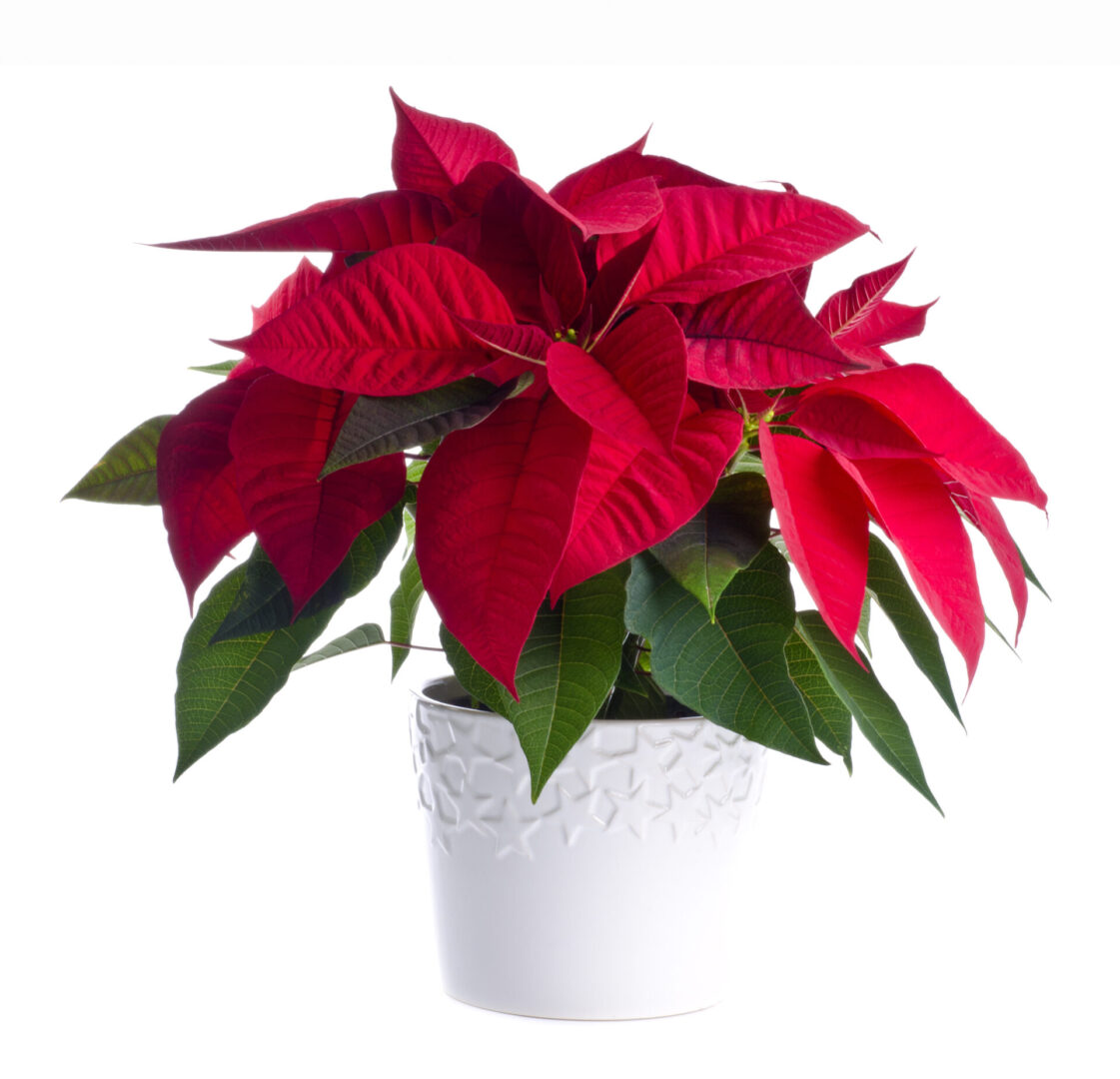 Poinsettia
Poinsettia
It’s a Christmas classic, next to your freshly picked holly and mistletoe! When selecting a Poinsettia, choose one that has little yellow flowers called cyathia in the center of the colored leaves. This indicates the plant has not passed its prime season yet, and will last you through the winter season before fading.


